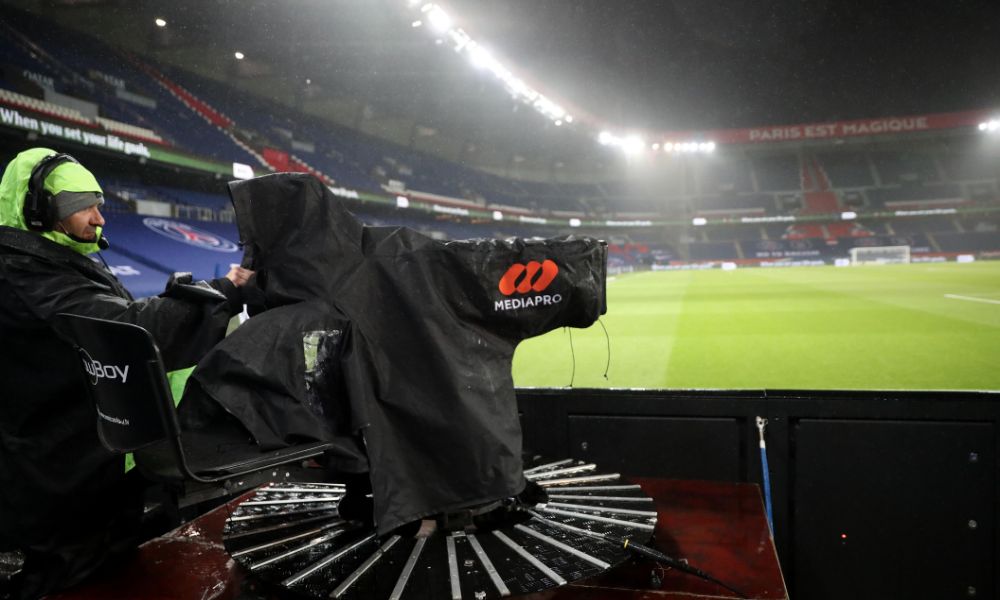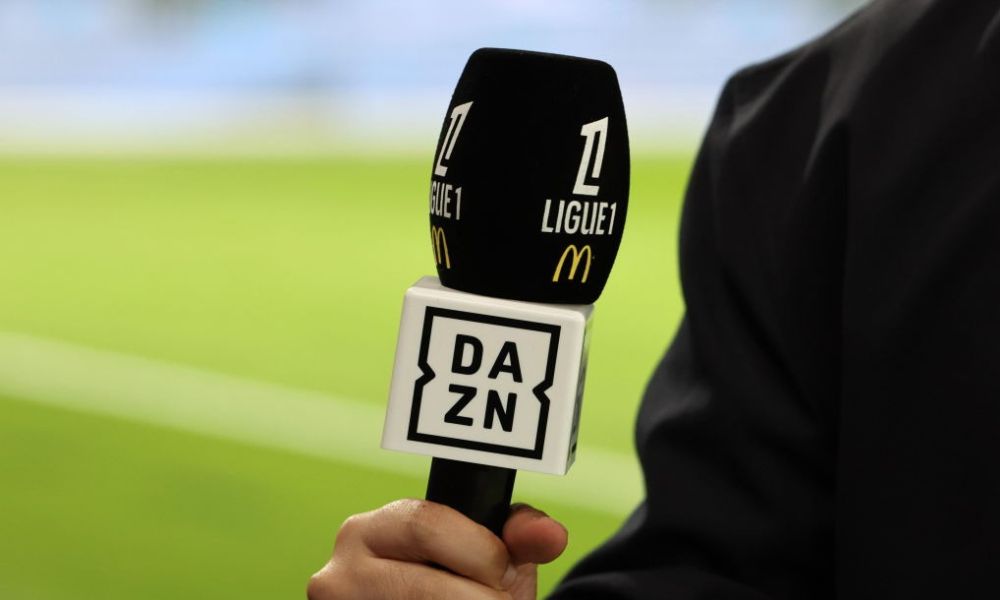I’m not sure whether the French language possesses a phrase equivalent to ‘if a deal sounds too good to be true then it probably is’. But it would have been worth someone translating that well-trodden cliché when France’s Professional Football League (LFP) accepted Mediapro’s €814 million-a-year offer for the lion’s share of Ligue 1’s domestic broadcast rights back in 2018.
After years of trailing other members of the ‘big five’ major European soccer leagues on and off the field of play, the LFP sensed an opportunity to narrow the financial gap with Mediapro’s largesse. Indeed, when combined with BeIN Sports’ €320 million-a-year contract, the LFP had increased the value of its domestic contracts by 60 per cent to €1.15 billion-a-year – second only to the Premier League at the time.
Sowing the seeds of crisis
Many, including long-term broadcast partner Canal+, questioned the wisdom of paying so much for the rights. But Mediapro was convinced the rising profile of the league, the presence of star players like Neymar and Kylian Mbappe, and changing consumption habits would encourage French soccer fans to pay €25.99 a month for a dedicated Ligue 1 channel.
But the results were disastrous as ‘Telefoot’ struggled to gain traction among consumers and advertisers. Intense competition from rival sports subscription services, a marketplace ravaged by Covid-19 (which also closed bars and restaurants), and the lack of a distribution agreement with Canal+’s pay-TV platform were all major factors.
But ultimately the issue was that Mediapro had overestimated demand. Needing upwards of 3.5 million subscribers to turn a profit, Telefoot had just 600,000 by November 2020 and, after failing to renegotiate its contract, walked away from its deal by the start of 2021.
Now, no one is accusing the LFP of failing to foresee a global pandemic that caused such financial trauma to French soccer and created a challenging commercial environment for Mediapro to launch its dedicated ‘Telefoot’ Ligue 1 channel ahead of the 2020/21 season.
But by failing to secure the necessary payment guarantees from Mediapro, not listening to concerns from industry observers and club presidents about the viability of the company’s vision, and alienating long-term broadcast partner Canal+, the LFP’s decision created the conditions for a permacrisis from which Ligue 1 has yet to emerge.

Mediapro’s Telefoot service launched in the middle of the Covid-19 pandemic (Image credit: Getty Images)
The path to DTC
A series of cut-price short-term deals have failed to address financial uncertainty, key partners have either been alienated or discouraged, and there has been a significant devaluation in Ligue 1’s domestic rights. With Amazon and Canal+ (via a sublicensing agreement with BeIN Sports) unwilling to renew their €650 million deals last summer, the LFP failed to receive any satisfactory bids.
It abandoned a formal auction process in favour of private negotiations with broadcasters, creating contingency plans for a DTC service. This brinkmanship meant €500 million-a-year deals with DAZN and BeIN Sports were only reached on the eve of the new Ligue 1 season, exacerbating the uncertainty for its clubs.
Yet the arrival of DAZN has failed to arrest this decline. With the sports streaming servicehttps://www.sportspro.com/news/dazn-ligue-1-tv-deal-january-2025/ attracting as few as 500,000 subscribers, the company is unconvinced it will ever reach the 1.5 million needed to break even on its investment and has reportedly agreed a deal to terminate its deal prematurely.
It now appears as though the LFP is out of options when it comes to a traditional broadcast deal and will launch its own DTC service in the near future. While other major leagues have suggested they could go it alone, the prospect of an in-house streaming service has only ever been a bargaining chip to extract more cash from broadcasters.
Now, the bargaining chip is Ligue 1’s only realistic route to market.
Going DTC offers the ability to increase margins, exert editorial control and build deeper and more direct relationships with fans. But it also requires significant investments in content, marketing and technology without guaranteed and predictable returns.
The LFP’s previous contingency plans for a DTC service included an ambition to reach two million users, each paying between €25 and €30 a month. However, both Telefoot and DAZN failed to attract anywhere near that minimum threshold at a similar price point.

DAZN has proposed investing in Ligue 1’s DTC proposition (Image credit: Getty Images)
Can it work?
Ligue 1, which already has a DTC service in the UK, does have some cards to play this time round. As per the terms of its reported settlement, DAZN will pay up to €100 million in compensation in addition to owed rights fees for terminating its five-year contract early.
However, it is said to have proposed allocating these funds towards a planned DTC service, providing Ligue 1 with valuable production and distribution resources. DAZN, which already distributes several other third-party OTT platforms, such as NFL Game Pass and National League TV, would still be able to offer Ligue 1 soccer to subscribers.
Indeed, other pay-TV platforms are also believed to be keen on carrying the channel, allowing them to offer French soccer to customers without getting involved with the messy economics of directly acquiring rights. ‘Ligue 1 TV’ would benefit from wide availability and promotional support from multiple broadcasters which, coupled with a more attractive price point, could lead to more subscribers.
But this situation demonstrates why no other major European soccer league has gone full DTC. Traditional media rights deals offer lucrative, predictable revenue streams that have driven exponential growth for more than three decades. Instead, Ligue 1 assumes all the risk and clubs will have to get used to the idea of variable media income.
While broadcasters and platforms use sports rights as a means to support their core businesses, Ligue 1 is only involved in one business – soccer. There is no other division to offset any financial catastrophe. Then there is the issue of piracy that has hindered DAZN.
Have we seen this before?
The only comparable experiment is MLS’s US$2.5 billion partnership with Apple. But even in this scenario, MLS receives regular payments and benefits from Apple’s technological and marketing expertise, providing it with a platform to challenge the other US major leagues. Ligue 1, as the largest sporting property in France, is no challenger and has been a major player in pay-TV for four decades. It’s also worth pointing out that having gone entirely behind a paywall, Apple and MLS are seeking to widen reach through linear television contracts and innovative partnerships with the likes of EA Sports.
In fact, the closest comparison might be SPL TV. In the early 2000s, many within the Scottish Premier League (SPL) believed an in-house television channel would allow it to either increase media revenues or act as a useful bargaining chip with Sky Sports. Amid a challenging European rights market, a dot-com bubble bursting, and deteriorating relations with Sky, SPL TV eventually became the only option on the table.
Despite projections of needing only 100,000 subscribers to break even, Celtic and Rangers pulled out of the project, arguing it was too risky (and because they supposedly believed there might be an opportunity to join the English leagues). The result was a television deal with the BBC that was not only far less lucrative but impacted matchday revenue because games were available free-to-air (FTA).
While SPL TV might have been ahead of its time – both in terms of attitudes within the sports industry and structural changes in both broadcasting and technology – the situation Scottish soccer faced in 2002 bears some similarities with Ligue 1 in 2025. Ligue 1 will benefit from technological advances and changing consumption habits, but going DTC still seems as risky an endeavour as it did 20 years ago – at least for a top-tier property.
But perhaps Ligue 1 now believes the risk is worth it. A successful DTC venture could expand the audience, bring alienated broadcasters back to the table, and prove the value of its rights.
Then again, it has nothing left to lose.

Get access to richer content, exclusive reports, unparalleled business intelligence, and community benefits to help you navigate the next frontier of sport and make more informed decisions with a SportsPro+ Premium membership. .
Source: https://www.sportspro.com/insights/analysis/ligue-1-tv-channel-dtc-streaming-dazn-broadcast-rights/
.